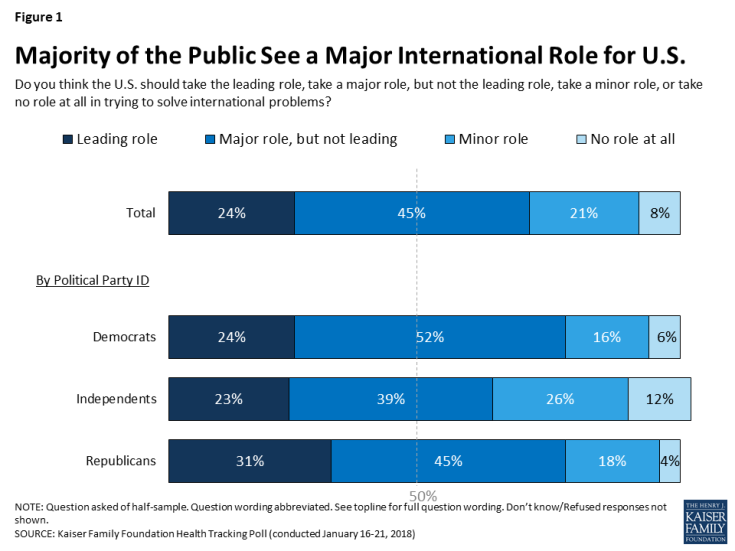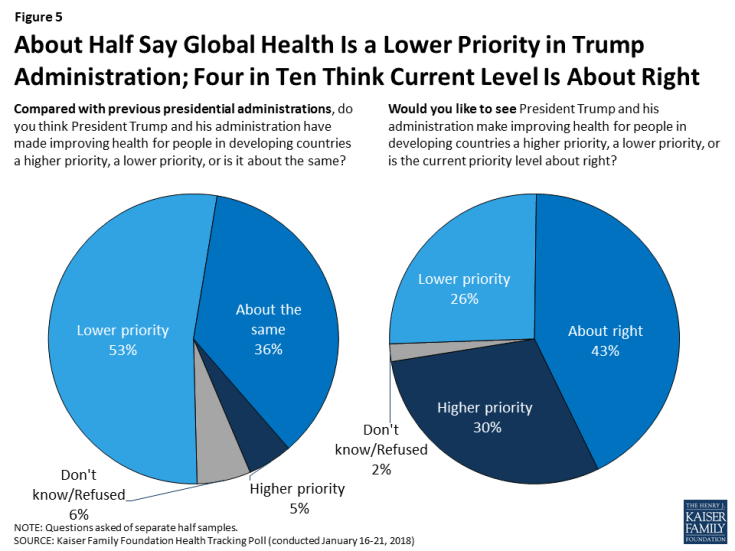A Check Up on U.S. Global Health Policy, After One Year of the Trump Administration
The January 2018 Kaiser Health Tracking Poll examines the public’s perceptions and attitudes about the role of the United States in efforts to improve health for people in developing countries.
#1: Majority of Americans Say the U.S. Should Play a Leading or Major Role in International Affairs
The survey finds that a majority of the public (69 percent), including most Democrats (76 percent), Republicans (76 percent), and independents (62 percent), think the U.S. should take a major or leading role in solving international problems.
#2: Smaller Shares – But Still About Half – Say the U.S. Should Play a Leading or Major Role in Improving Health for People in Developing Countries
About half the public (54 percent), including 73 percent of Democrats and around half of independents (47 percent) and Republicans (49 percent), say the U.S. should take a leading or major role in improving health for people in developing countries. About four in ten (41 percent) Trump supporters say the U.S. should take a leading or major role in improving health in developing countries, compared to two-thirds of those who do not approve of President Trump’s job performance.
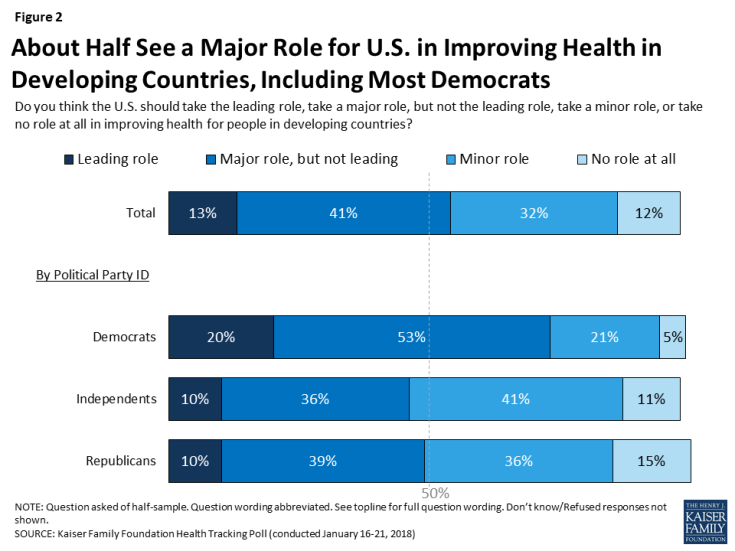
Figure 2: About Half See a Major Role for U.S. in Improving Health in Developing Countries, Including Most Democrats
#3 Half of Americans Say U.S. Spends Too Much on Foreign Aid, Until They Hear Actual Spending Amount
The poll finds half of the public (49 percent) say that the U.S. is now spending “too much” on foreign aid, while 13 percent say the U.S. is spending “too little” and three in ten say the U.S. is spending “about the right amount.” Yet, after hearing that foreign aid spending is actually about one percent of the federal budget, the share of the public who say spending is “too much” decreases from 49 percent to 29 percent.
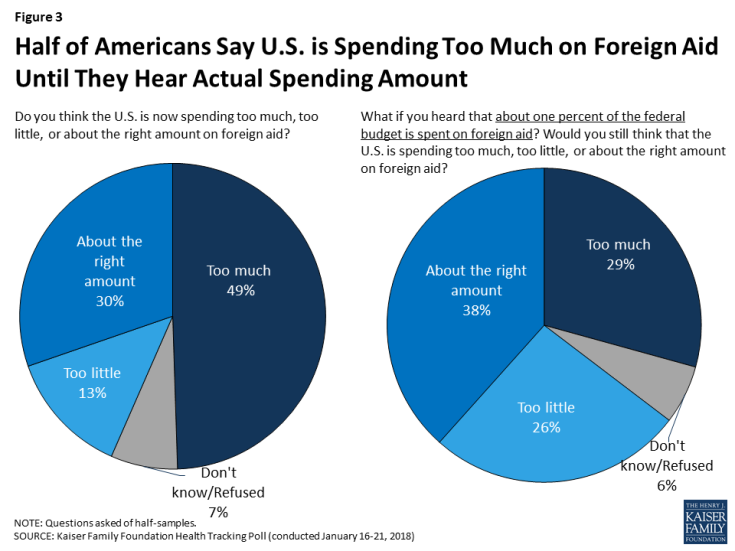
Figure 3: Half of Americans Say U.S. is Spending Too Much on Foreign Aid Until They Hear Actual Spending Amount
#4: More Now Say the U.S. Is Spending Too Much on Efforts to Improve Health for People in Developing Countries Compared to Previous Years
Most of the public (59 percent) believes the U.S. is spending “about the right amount” or “too little” on global health programs, but one-third (33%) believe the U.S. is spending “too much” – a significant increase from the 18 percent saying the U.S. was spending “too much” in 2016, the last year the Foundation polled on this issue, but more similar to previous years’ polling.
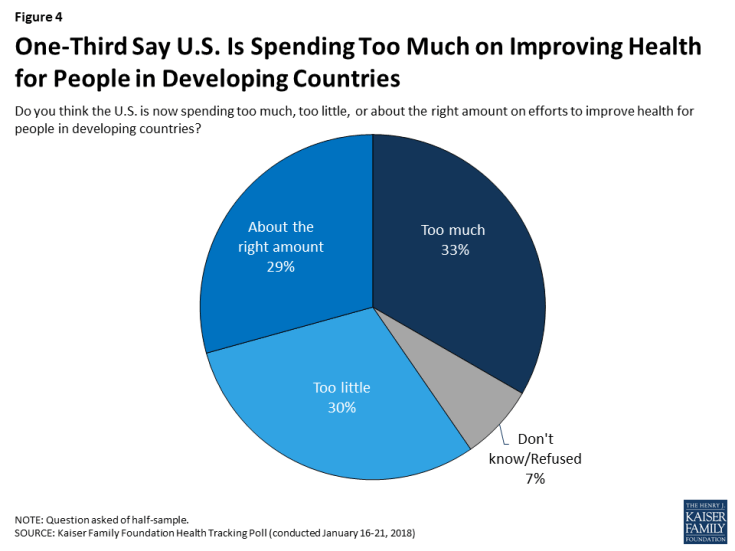
Figure 4: One-Third Say U.S. Is Spending Too Much on Improving Health for People in Developing Countries
#5: About Half Think Improving Global Health Is a Lower Priority For President Trump and his Administration
About half of the public (53 percent) believe President Trump and his administration have made improving health for people in developing countries a “lower priority” compared to previous administrations, and about one-third (36 percent) say the priority level has been “about the same.” Few (5 percent) say the Trump administration has made it a “higher priority.” When asked how they would like to see President Trump and his administration prioritize improving health for people in developing countries, four in ten Americans (43 percent) say President Trump’s current priority level is “about right.”

